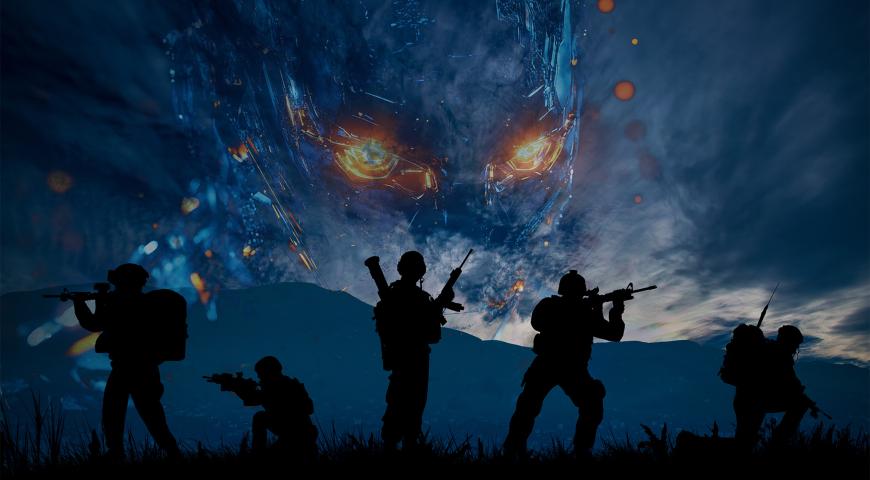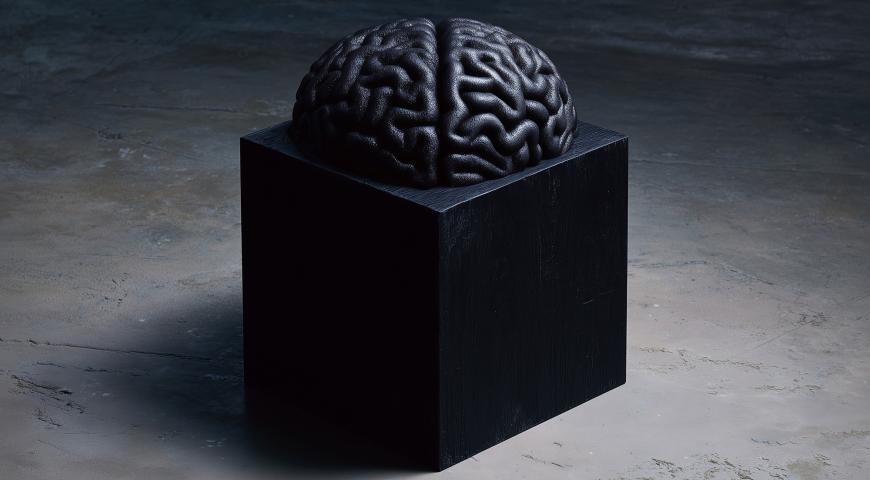Dr Deane-Peter Baker, Associate Professor at the University of New South Wales (UNSW), Canberra, asserts that “people who join the military need to clearly understand their moral framework and belief system, because humans are better able to cope with morally challenging environments when we understand who we are.”
That is, the difference between an individual who returns from a deployment morally injured, and an individual who returns unharmed, may be whether they can answer ‘what do I really believe? Who am I? Where do I belong? What is my purpose?’
Can you answer those questions? Because I’ve realised I can’t. Or at least, I can’t articulate a sophisticated answer. Unsurprisingly, ‘knowing thyself’ was not a standardised training package belt-fed to me at recruit school. But I think it belongs in our conception of total soldier fitness: physical, intellectual, moral/ethical and spiritual (which can be distinct from religiosity).
Professor Pauline Shanks Kaurin, an ethicist at the U.S. Naval War College, believes it is the military’s job to help its people discover their morals because “training that develops ethical capacities like reflection, critical thinking, empathy and moral imagination in their subordinates is one of the responsibilities of the chain of command.” But first, we have to know what we’re dealing with.
Moral injury is not
Using all the existing commentary and literature to distil one definition, moral injury is described as occurring when somebody’s moral perception of the world or themselves- which is tied to their sense of purpose, meaning and self- is shattered.
While moral injury could be linked to real or perceived war crimes, it also readily applies to legal events that challenge, damage or destroy an individual’s moral conviction, conscience or sensitivity. Two service personnel who witness the same event, or who legally engage the same legitimate targets in the course of duty, might return home affected differently because they have distinct understandings of what is right and wrong, or just and unjust. To the individual who experienced the moral injury, it does not matter whether others would consider that situation immoral because a person’s moral framework or belief system is entirely unique.
What is moral injury?
There are two widely quoted authors writing on moral injury. The first is American psychologist Brett Litz who is considered the ‘founding father’ of moral injury. In an article for the Clinical Psychology Review, Litz describes moral injury as
Noting the contexts are different, “if that were also true of the Australian Defence Force (ADF), where PTSD affects 8-12% of serving personnel, then the true rate of moral injury in the ADF could be 40-60%,” says Archdeacon to the Australian Army Robert Sutherland. This is an estimate though, as we do not have any statistics on the number of ADF personnel who have sustained moral injury because “it is not being particularly well-tracked at the moment,” says Chaplain Sarah Gibson. Gibson is the Director of Spiritual Health & Wellbeing and Health Chaplaincy at the ADF Joint Health Command; she develops policy and programs focusing on spiritual health.
The other widely quoted author is clinical psychiatrist and classicist Jonathan Shay who wrote Achilles in Vietnam: Combat Trauma and the Undoing of Character (1994) and Odysseus in America: Combat Trauma and the Trials of Homecoming (2002). These books use the Grecian heroes Achilles and Odysseus in The Iliad and The Odyssey to show that the spiritual wounds experienced by service personnel in the Vietnam War had been experienced by warriors for millennia.
Shay proposes that the causes of moral injury may be twofold. The individual may see themselves as a perpetrator (for acting or failing to act) and therefore feel guilt or shame. Alternatively, the individual may see themselves as a victim who has been betrayed or abandoned by the action or inaction of a trusted person(s) or organisation (e.g. the chain of command). Agency and liability are fundamental to moral injury. In Shay’s definition, the type of moral injury a person sustains depends upon whether the individual perceives themselves as having done wrong or having been wronged.
What is the difference between moral injury and PTSD?
Moral injury isn’t currently recognised in the authoritative American Psychiatric Association (APA) Diagnostic and Statistical Manual of Mental Disorders (DSM). This means it is not a recognised mental health issue and there is no agreed diagnostic tool that would be recognised by health insurance companies. The symptoms generally ascribed to moral injury are accommodated by the diagnostic criteria for PTSD in the DSM, and there is doubt whether moral injury exists independently of PTSD.
“Moral injury and PTSD have a similar symptomology, but a very different causal link,” says Lieutenant Commander Troy Irwin, a chaplain in the Canadian Armed Forces, registered psychotherapist, and specialist in operational stress injuries. “They are both traumatic; they both occur post an event; they both carry disorientating residual effects (such as sleeplessness, nightmares, and general disquiet); they both can be masked by the same maladaptive coping mechanisms (like drug abuse and alcoholism). Yet one is an exposure to trauma that causes residual fear and terror, and one is an exposure to something that fractures an individual’s moral code. This shakes them loose from their moral foundation, which is traumatising, so the symptomology is very similar to being exposed to life-changing trauma. Just because something isn’t recognised by the DSM doesn’t mean it doesn’t exist, but it does mean that moral injury certainly doesn’t have the same recognised status as PTSD, and we shouldn’t talk about it as such.”
The extent to which moral injury is conflated with PTSD indicates how misunderstood moral injury is, says Rhiannon Nielsen, author and researcher at UNSW, Canberra. “PTSD has become a catch-all phrase for a lot of experiences that military personnel go through, but PTSD doesn’t have to be linked to a person’s moral convictions. For example, PTSD can be sustained in a car accident where there is no moral component at play. PTSD might be a useful point of reference to begin articulating moral injury, but in terms of prevention and treatment they need to be considered separately.”
So What?
If you came away from this introduction with more questions than answers, I think you fully appreciate our current understanding of moral injury. Is ‘moral injury’ a real condition? Does it constitute harm? If so, how does that impact the Australian Defence Force’s obligation to care for its people? These questions do not diminish the suffering of those who identify as having a moral injury. The ongoing research by Open Arms– Veterans and Families Counselling (formerly VVCS), the Department of Defence and Phoenix Australia– Centre for Posttraumatic Mental Health to develop a Moral Injury Scale will be key to helping us understand where it fits in the mental health framework that exists to look after service people.
Moral injury is not unique to war, but seems possible in all forms of armed conflict, peacekeeping missions, humanitarian aid and disaster relief. To date,
It is possible that a moral response to an event is part of being human and we are just pathologising a normal response; trying to find a solution where there is not a problem. “I think we have a moral obligation to explore this as a research area,” Rhiannon Nielsen says, “but I don’t think we have a moral obligation to prevent our service personnel experiencing moral injury. Unfortunately, I think moral injury will continue to be inevitable for lots of service personnel, because, even if they are necessary, the actions committed in war are morally egregious and upsetting.”
Professor Pauline Shanks Kaurin agrees, “I would argue that some form of moral injury is part of war because the use of violence is not morally normal and every day. I would be more concerned if we had no one with moral injury as that would mean we had become morally insensitive and inhumane. That said, it is possible to mitigate and reduce it. It is the chain of command’s responsibility to develop training that builds ethical capacities like reflection, critical thinking, empathy and moral imagination in their subordinates.”
The chain of command is responsible for the support and care of their people; whatever that looks like. If moral injury is something that might affect soldiers, then it serves to have an awareness of it within your team.
I am cognisant of not wanting to contribute to a narrative that ‘veterans are victims.’ Any discussion of moral injury is less credible for not also highlighting that some people are actually strengthened and empowered by their experience in war; by the fact that they helped people and made a difference in difficult environments. This is captured in the idea of Post traumatic growth championed by United States General (retd) and former United States Secretary of Defense James Mattis.
Shanks Kaurin says, “for some people, war is actually quite fulfilling and exciting for their soul, giving a sense of community, connection with fellow fighters (even the enemy), and a sense of larger meaning or purpose outside the individual.” Service personnel who can reconcile the fact of war in their mind and understand that their actions are guided by ethical principles and legal constraints can be morally empowered. It is an important narrative to tell alongside moral injury.
If you or someone you know needs support, contact one of the services:
Defence All-hours Support Line – 1800 628 036 - Confidential telephone service for ADF members and their families, available 24/7
Defence Family Helpline- 1800 624 608- For ADF members and their families, staffed by qualified social workers and psychologists, available 24/7
Open Arms- 1800 011 046 - Veterans & Family Counselling
Lifeline – 13 11 14 - Crisis support and suicide prevention
Mens Line Australia- 1300 789 978 - Counselling for men, available 24/7
This account of moral injury relies upon the generosity of practitioners and subject-matter-experts. This work was informed by research interviews conducted with Australian, Canadian, British and American civilian and military personnel. Direct quotations are my own transcript of each recorded interview.
Samuel J. Cox is the editor of Grounded Curiosity. You can follow him on Twitter via the handle @samuel_j_cox.
Image credit: ID 19499921 © Lpgiraud | Dreamstime.com
Defence Mastery
Social Mastery
Please let us know if you have discovered an issue with the content on this page.
Comments
Start the conversation by sharing your thoughts! Please login to comment. If you don't yet have an account registration is quick and easy.




